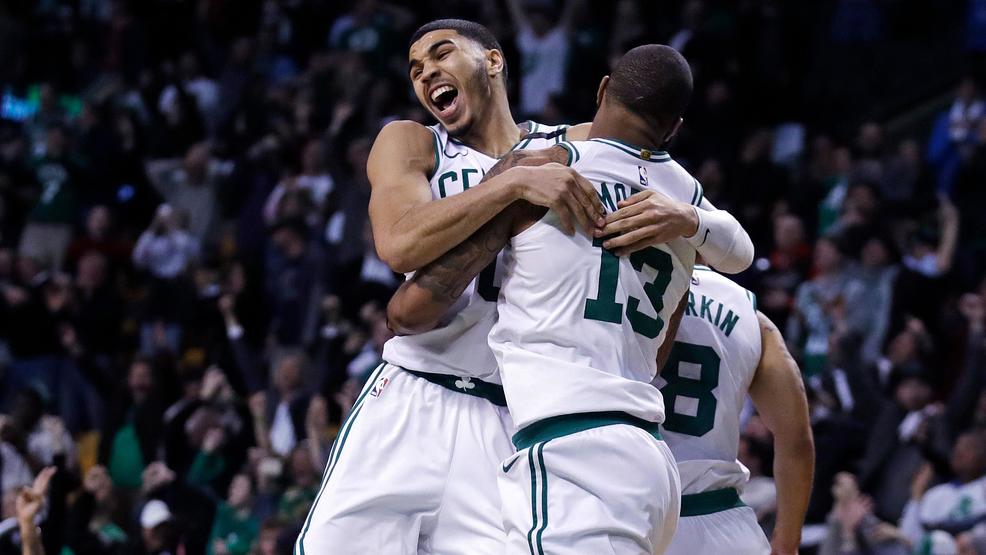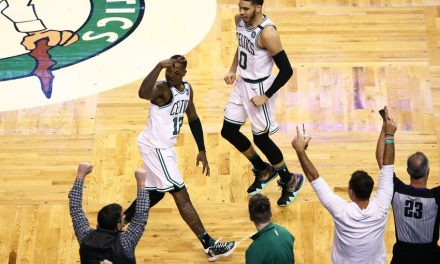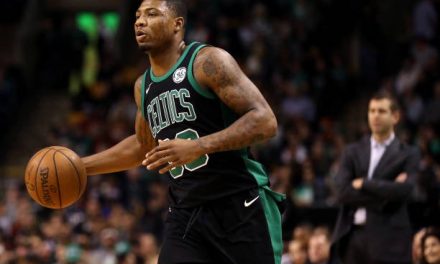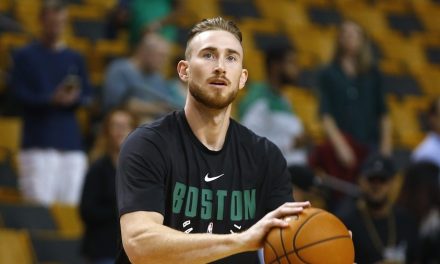If Game 1 against Indiana was any indication, the Boston Celtics are going to be relying on their defense in the 2019 playoffs.
Boston’s 84-74 win left fans understandably concerned about certain aspects of Boston’s offense, but the effort at the other end was undeniable, especially in the second half when they held the Pacers to a season-low 29 points.
While the final margin was just ten points, Boston was in total control for most of the second stanza, stretching a nine-point lead at the end of the third quarter (63-54) into a 22-point lead (84-62) with just over three minutes left in the game.
The Celtics were sizable -400 favorites to win the series before Game 1, and are now -850 chalk after shutting down Indiana for a solid 24 minutes.
According to the analysts at SBD, though, their odds to win the East remain basically unchanged at +350. That’s because of a looming second-round matchup with the top-seeded Milwaukee Bucks, who looked as good in Game 1 against Detroit as they did in their historic 60-win regular season.
Soon-to-be league MVP Giannis Antetokounmpo and company put a 35-point beatdown on the Blake Griffin-less Pistons (121-86) and it will be a massive surprise if that series goes to five games.
While the Celtics should be able to close out Indiana relatively quickly, it’s undeniable that Boston/Indiana is going to be a much more physical, fatiguing series than Milwaukee/Boston.
Brad Stevens said to the Associated Press that Game 1 “looked like a 1980s playoff game … [The Pacers] are physical”.
Adding to the doubts about Boston’s long-term playoff success, the Celtics will be playing shorthanded for the foreseeable future, down Marcus Smart until at least the Eastern Conference finals. Only eight Celtics played more than five minutes in Game 1. Compare that to the Bucks, who had 11 players log at least 12 minutes in Game 1 against Detroit.
When/if they do meet in the second round, Milwaukee is likely to be the fresher, healthier team from the outset, an advantage that will only become more pronounced as the series progresses.
The injury to Smart is not just a manpower concern, either. As arguably the Celtics’ best on-ball defender, his absence will be felt a lot more in a series with Milwaukee, which finished fourth in Adjusted Offensive Rating, than against Indiana, which finished 18th (even with half a season of Oladipo).
The optimists will point to last year’s seven-game win over Milwaukee in the first round and note that Boston didn’t have Kyrie Irving or Gordon Hayward in that series. Subtracting Smart for Irving and Hayward is still a net gain, surely?
But that argument ignores the progress Milwaukee has made under Mike Budenholzer. The Bucks jumped from 9th to 4th in Adjusted Offensive Rating and from 21st to 2nd on defense. They now attempt and make the second-most threes in the entire league. Last year, they were 25th in attempts and a brutal 27th in makes.
Even at full strength, this year’s iteration of the Bucks would be a handful for this year’s iteration of the Celtics. Milwaukee won the regular-season series 2-1, despite Boston getting two home games. If Boston is going to match their playoff performance from last year and get back to the East finals, they will likely need to be every bit as good on defense as they were on Saturday while improving on the offensive end, where they shot just 36.4% from the field.
Yes, the Indiana defense is very good. Milwaukee’s is better.
Can Celtics’ Defense Carry Team Back to Eastern Conference Finals?






